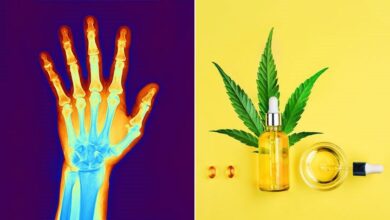What Does CBD Stand For? Understanding the Power of Cannabidiol

In recent years, CBD has gained significant popularity, but many people are still unsure about what CBD stands for and what it entails. CBD, short for cannabidiol, is one of the many compounds found in the cannabis plant. Unlike its counterpart THC, CBD does not produce psychoactive effects. Instead, it offers a wide range of potential health benefits, making it a subject of great interest. This article aims to shed light on the meaning of CBD, its uses, and its differences from THC.
Understanding CBD
CBD is an abbreviation for cannabidiol, a naturally occurring compound found in cannabis. It is one of over a hundred cannabinoids identified in the plant. CBD interacts with the body’s endocannabinoid system (ECS), which plays a crucial role in maintaining homeostasis. Unlike THC, CBD does not bind directly to the CB1 receptors in the brain, which is why it doesn’t cause the “high” associated with marijuana. Instead, CBD modulates the receptors indirectly, influencing various physiological processes.
The Benefits of CBD
CBD has shown great potential in providing numerous health benefits. Research suggests that CBD may help alleviate symptoms related to anxiety, depression, chronic pain, epilepsy, and even cancer-related symptoms. Additionally, CBD has anti-inflammatory properties that make it a promising option for managing conditions such as arthritis and multiple sclerosis. While more research is needed to fully understand CBD’s potential, anecdotal evidence and preliminary studies indicate its positive effects on human health.
CBD vs. THC
The Key Differences CBD and THC are both compounds found in cannabis, but they differ significantly in their effects on the body. THC, or tetrahydrocannabinol, is the primary psychoactive compound responsible for the “high” associated with marijuana use. CBD, on the other hand, does not produce any intoxicating effects. This key difference has made CBD more accessible and legal in many countries and states where marijuana remains prohibited. CBD allows users to experience potential therapeutic benefits without altering their cognitive state.
Legal Considerations and Safety
The legal status of CBD varies from country to country and even within different states. In some regions, CBD extracted from hemp, containing less than 0.3% THC, is legal for medicinal or recreational use. However, it’s essential to stay informed about the regulations specific to your location before purchasing or using CBD products. Furthermore, while CBD is generally considered safe, it can still interact with certain medications. It’s advisable to consult with a healthcare professional before incorporating CBD into your wellness routine.
CBD Products and Usage
CBD is available in various forms, including oils, tinctures, capsules, edibles, topicals, and more. Each product type offers different methods of consumption, making it easier to find an option that suits individual preferences. CBD oils and tinctures are typically taken sublingually, allowing for fast absorption. Edibles provide a more discreet and convenient way to consume CBD. Topicals are designed for localized application, offering potential relief for muscle and joint discomfort. Experimenting with different forms can help determine the most effective way to incorporate CBD into your daily routine.
Conclusion
CBD, short for cannabidiol, has emerged as a powerful compound with potential therapeutic effects. Its ability to interact with the endocannabinoid system opens up a world of possibilities for promoting overall well-being. By understanding what CBD stands for and recognizing its key differences from THC, individuals can make informed decisions about its usage. As with any supplement, it’s crucial to consult with a healthcare professional and research local regulations before incorporating CBD into your health regimen. With further research and growing acceptance, CBD may continue to revolutionize the field of natural health and wellness.




